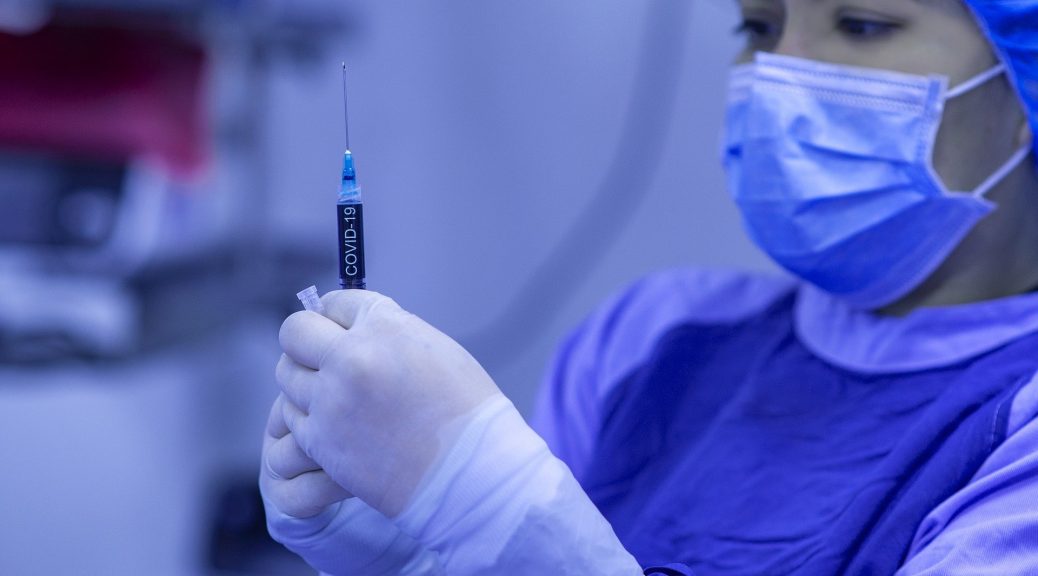
How Close Are We To a COVID-19 Vaccine?
The COVID-19 pandemic has brought extraordinary changes and challenges to our lives this year. From masks and social distancing to virtual schooling and limited gatherings, all of us are wondering when we can get back to ‘normal.’ It’s understandable, then, that one of the biggest questions on the minds of everyone is: When will we have an effective vaccine?
The Good — and the Bad: News from Vaccine Makers
Luckily, as the year comes to a close, we have been given potentially good news regarding a vaccine for the virus. As reported by TIME, the companies Moderna and Pfizer announced in late November that their COVID-19 vaccines are up to 95% effective in offering protection against this new strain of coronavirus. If their percentages prove to be correct, then this is an incredible amount of protection that surprised even scientists and researchers.
However, it’s important to understand that, as of right now, these vaccines only offer protection against the virus, not necessarily complete immunity. For comparison, think of the flu vaccine. Receiving the flu vaccine significantly protects you from getting the flu, but you might still get the flu. If this happens, though, your chances of having a case of the flu that is severe enough to send you to the hospital is much less likely. The COVID-19 vaccine, as it is currently being tested, would likely work in a similar way. People who receive the vaccine would be unlikely to show extreme, deadly symptoms of COVID-19. They may not even show symptoms at all. This would be lifesaving, but it wouldn’t necessarily mean that they could never get the virus — or that they could never spread the virus to others, even if asymptomatic. This is an area where more research needs to be done.
Vaccines: A Workout for Your Body
As a Duke University medical professor shared with the AARP, a vaccine is essentially a workout for your immune system. Your immune system encounters virus-causing germs all day and works to clear them, keeping you from getting sick. When you are given a vaccine, you are given something (often an inactive virus) that has been carefully designed and studied to make your immune system produce proteins, called antibodies, that protect you the next time that you encounter that virus in real life. Another way to look at a vaccine is like a test. With a vaccine, your immune system is being given the opportunity to practice attacking a virus before it encounters the real thing.
The COVID-19 vaccine is your body’s opportunity to build up antibodies that could keep you from getting sick with the virus, or at least only experience mild symptoms.
So, What Does All of This Mean?
Unfortunately, the end result of all of this research means that, even with a vaccine, it is unlikely that we will be able to take off our masks or stop social distancing anytime soon. In the short term, a vaccine will help us gain much needed control over the virus, saving lives and keeping our healthcare system from being overwhelmed. In the long term, when most people have been vaccinated, we will likely be able to finally return to some degree of normalcy.
Since this is such a new virus, there is still much research to be done when it comes to understanding how COVID-19 works. We still don’t know if vaccines will have to be offered once a year, for example, or if the virus could change in a way that would make us have to change our vaccines. A virus works a little like a villain in a superhero movie. Sometimes, when it finally does have difficulty infecting people, it begins to change (or mutate) in order to still infect people. Hopefully, that won’t happen with COVID-19, but it’s something that scientists have had to consider.
Our New Normal: Living in the Time of the COVID-19 Pandemic
When a vaccine is finally released to the public, the amount available will probably be limited. The people most likely to receive the vaccine first will be frontline health care workers, followed by people with chronic medical conditions. Older populations, too, will likely receive the vaccine before younger people. It is currently thought that the entire public might be able to access the vaccine sometime around next March or April, but this could always change.
For now, the best thing that you can do is to continue the healthy habits that you’ve been practicing. Properly wear a facial covering over your nose and mouth when you leave the house. Wash and sanitize your hands regularly. Try to limit gatherings or hold them in well-ventilated areas, like the outdoors. Stay at least six feet away from others as often as possible. These are the practices that will be in place long after a COVID-19 vaccine is distributed.
Medical Supplies at Discounted Prices
ATC Medical is proud to supply medical supplies of the highest quality at discounted prices. Explore our collection of products today!